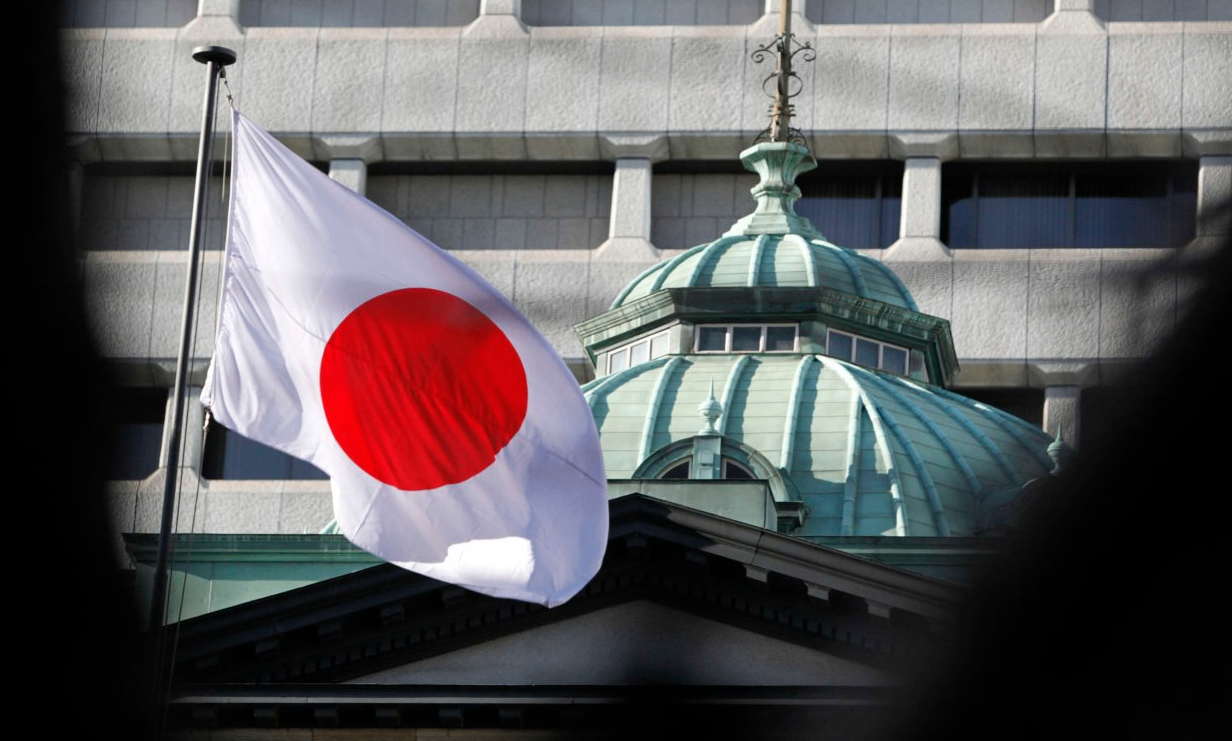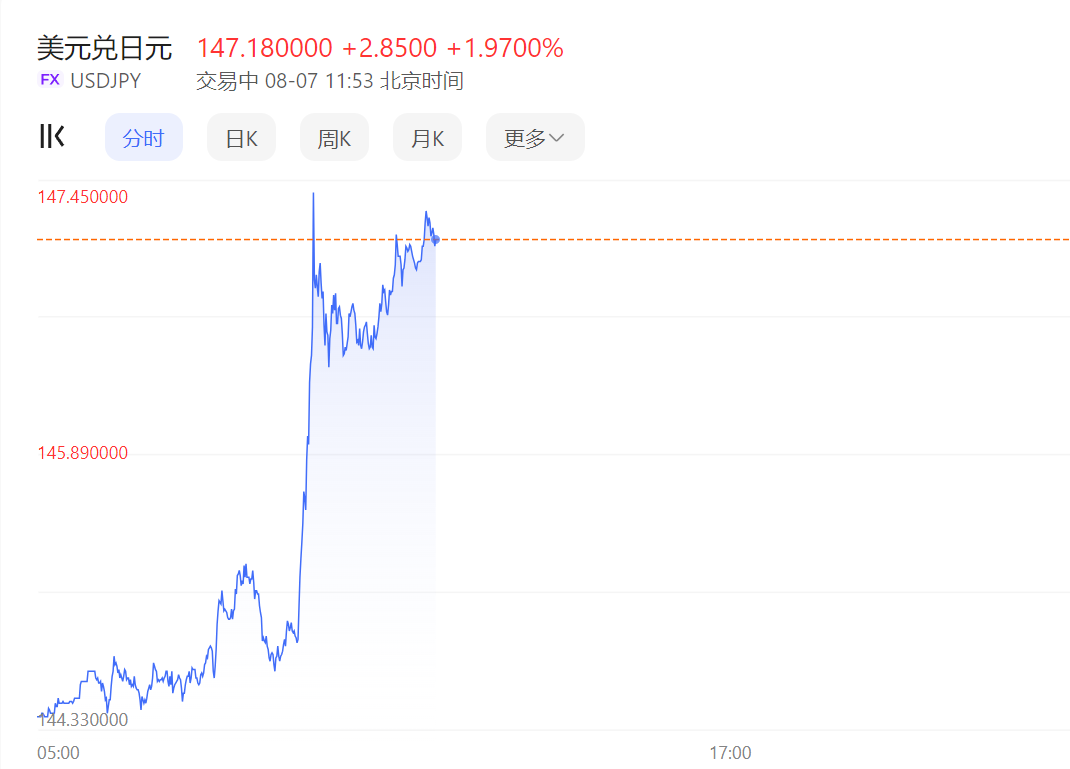BOJ Officials Signal Dovish Stance After Market Volatility, Yen Weakens
Bank of Japan Deputy Governor Shinichi Uchida said at an event on Wednesday that the central bank will not raise interest rates in times of financial market instability.
In the first two trading days of the week, the Japanese stock market first plummeted 12%, and then rebounded sharply by 10%, a very rare and unusual volatility that has made investors fearful.
In response, Bank of Japan Deputy Governor Shinichi Uchida (Shinichi Uchida) came out to calm investors, saying at an event that the central bank would not raise interest rates at a time of financial market instability.
"I believe that the central bank needs to maintain monetary easing and the current policy rate for the time being, given the extremely volatile developments in the financial and capital markets at home and abroad." Shinichi Uchida said, "Unlike the process of policy rate hikes in Europe and the U.S., the Japanese economy is not in a situation where the central bank could fall behind if it does not raise policy rates at a certain pace. Therefore, the BOJ will not raise the policy rate when the financial and capital markets are unstable."

Shinichi Uchida, one of the senior officials involved in policymaking, was deeply involved in designing the Bank of Japan's massive monetary easing program that lasted more than a decade and played an important role in planning Bank of Japan Governor Kazuo Ueda's move toward policy normalization.
On Monday, a rare plunge in Japan's stock market raised some questions about the timing of the BOJ's rate hike. Daiwa Securities chief market economist Mari Iwashita believes: "This is a poorly timed rate hike. The BOJ must wait and see if the U.S. economy will fall into recession or have a soft landing before it can take the next step." He said that the original market expectations of the BOJ rate hike in September and October "is no longer possible."
Analysts are divided over the BOJ official's statement to pause the rate hike.
Gaitame.com Institute analyst Takuya Kanda said: "The reason why the Bank of Japan rate hikes, because it does not like the yen depreciation. Now, it seems to be hinting at a pause in rate hikes because it doesn't like the stock market falling. If the BOJ pays so much attention to the market in setting policy, chances are it won't be able to raise rates significantly."
According to Yuichi Kodama, an economist at the Meiji Yasuda Research Institute, "It's too early to conclude that rates won't be hiked by the end of this year based on this statement, as it will depend on the market as well as the economic trends in Japan and the US. I believe the BOJ will raise rates again to 0.5% by the end of the year."
Toru Suehiro, economist at Daiwa Securities, said, "Uchida's comments were clearly dovish. Unless market sentiment recovers quickly, the likelihood of the BOJ raising rates in September or October is low." But at the same time, he believes the BOJ could raise rates in December if fears of a U.S. recession subside by the end of the year.
Christopher Willcox, head of trading and investment banking at Nomura Securities, takes a different view. He believes that the Bank of Japan's decision to raise interest rates last week was appropriate, and that if it waited longer, the unwinding of arbitrage trades would have had a greater impact on financial markets.
Strategists at JPMorgan said yen positions have been the most volatile on record over the past month, with the bank's model showing that as of Aug. 6, 65 percent of short yen positions had been closed. "While yen shorts remain, the volatility triggered by USD/JPY positions may decline from now on."
Separately, Japan's single-day spending on yen-buying interventions reached 5.92 trillion yen on April 29, the highest on record, after the previous high for a single day of intervention was 5.62 trillion yen on Oct. 21, 2022, quarterly data released by Japan's Ministry of Finance showed on Wednesday.
The two rounds of massive intervention had helped the dollar-yen exchange rate rise about 5 percent from a 34-year low of 160, but still failed to reverse the yen's prolonged weakness.
The yen weakened again after Shinichi Uchida's statement. The dollar-yen exchange rate fell to 141 on Monday, has now risen to around 147. As of press time, the dollar-yen exchange rate at 147.18, up nearly 2%.

·Original
Disclaimer: The views in this article are from the original Creator and do not represent the views or position of Hawk Insight. The content of the article is for reference, communication and learning only, and does not constitute investment advice. If it involves copyright issues, please contact us for deletion.